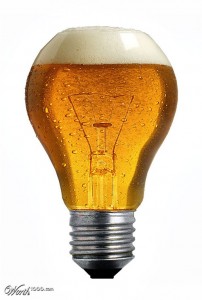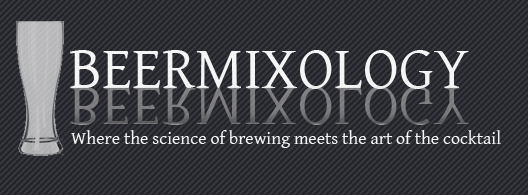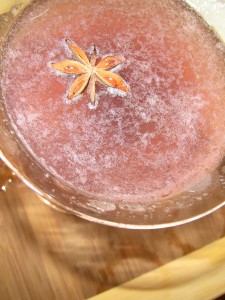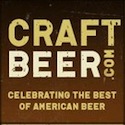
de·vi·a·tion [dee-vee-ey-shuh n]
n]
noun
1. the act of deviating.
2. departure from a standard or norm.
Synonyms: abnormality, anomalism, anomaly, atypicalness, bizarreness, eccentricity, exception, extraordinariness, oddity, peculiarity, strangeness, uncommonness, unnaturalness, unusualness, weirdness
Antonyms: conformity, sameness, straightforwardness, uniformity
“Without deviation from the norm, progress is not possible.” - Frank Zappa
If there is any industry defined by its deviation from the norm, it is craft beer.
Just a few decades ago, the craft beer industry didn’t even exist. Now, it is one of the fastest growing segments in the alcohol category. The foundation, the reason for its evolution and rapid growth has been, and continues to be, innovation.
Innovation, a form of deviance, is rarely accepted without criticism, rejection and fear. After all, innovation equals change. And change, more often than not, causes fear.
Oh, fear.
Quite possibly the largest obstacle to innovation and change, fear has the ability to cripple people. Fear is a powerful motivator of human behavior. It keeps us alive, but it also inhibits us from taking risks.
Call them what you want; innovators, deviants, rebels, change agents, trailblazers, trendsetters, etc. Whether it be positive or negative, these individuals are responsible for igniting and inspiring change, and overcoming conventional fear in the process.

Photo Source: Andrew Keir
“Innovation distinguishes between a leader and a follower.” - Steve Jobs
Without innovative leaders and trailblazers, the craft beer industry, as we know it, would cease to exist. If Ken Grossman didn’t push the boundaries of the pale ale recipe by using new locally grown, high alpha-acid, resiny and citrus hops — we wouldn’t have any of the American-style hoppy beers that we know and love today. If Vinnie Cilurzo, Stone Brewing Co. and other San Diego brewers didn’t push the boundaries on the IPA recipe, we wouldn’t have Double and Imperial IPAs. And the innovation doesn’t stop there.
Barrel-aging, blending beers, experimenting with wild yeast, turning pale styles dark, brewing with unconventional ingredients, brewing collaboration beers — all examples of innovation in the craft beer industry. Conservatives, purists and outsiders might be skeptical of these so called “bastardization” techniques. After all, who in their right mind would purposefully infect beer with bacteria and wild yeast? Who would purposefully oxidize beers in barrels? Why would anyone step outside the boundaries of the Reinheitsgebot and brew beers with crazy adjunct ingredients such as herbs, spices, and fruits? And why on earth would anyone want to “share the wealth” by collaborating with competitors?
The nature of an innovation is that it will arise at a fringe where it can afford to become prevalent enough to establish its usefulness without being overwhelmed by the inertia of the orthodox system. - Kevin Kelly
Beer Mixology: the art and science of crafting and mixing cocktails that use beer as an ingredient. A concept that has polarized the craft beer industry.
Some call beer mixology bastardization, arguing that mixing beer into cocktails degrades its integrity. After all, beer is already a perfectly crafted cocktail of hops, barley, yeast, and water. Why would anyone even want to destroy such a perfect balance, a product the brewer intended to be consumed as is, by integrating it into cocktail recipes?
So as both a craft beer evangelist and a brewer, why do I do it? Because, well, I can.
I am not, nor will ever call myself, the founder of the beer mixology movement. However, I am a student and an advocate of both craft beer and artisan spirits. And I consider myself to be one of the biggest supporters of beer mixology. But it doesn’t stop at support, oh no. My goal is to advance the beer cocktail movement through careful, well-executed education, inspiration and advocacy. Hence the development of BeerMixology.com — a collaborative website dedicated to the aforementioned goal.
To those beer purists that question me and reject the movement, I say “this isn’t about you.” Simple as that. This isn’t about you. Beer mixology is not about destroying beer. It is not an attempt to make beer better or to alter and change the quality and flavor of beer.
Au contrare, my critics, it is about improving the cocktail. It is the introduction of a new ingredient, one that is complex and flavorful, to the cocktail culture. In my opinion, beer mixology is an innovative way for the beer industry to cross-pollinate the spirits industry. It is a means for educating a new segment of the population about the intricacies of craft beer. Not to mention, beer has flavors and texture characteristics unmatched by any other ingredient used in cocktails.
But, let’s look at it from a marketing angle. At its most basic level, the target audience of the craft beer industry are individuals that can legally consume and choose to drink alcohol. That’s it. Anyone who can legally drink and choose to do so is within our target market.
Craft beer is probably the most under-appreciated and least understood beverage, in the spectrum of beverages. It is safe to assume that most imbibers are, typically, not drinking craft beer — especially, on a regular basis. In fact, many of them are drinking cocktails (heck, I don’t need to show you the numbers to tell you that liquor trumps all).
Enter the beer cocktail — the cross between a beer and a cocktail. A conversation piece. A delicious conversation piece, at that. A new and innovative way to introduce craft beer to a new segment of the alcohol consuming population.
Not to mention the artistry and science involved in crafting beer cocktails, which in itself demands an entirely different argument. Crafting a cocktail requires much more skill than most realize. To claim the title of Mixologist demands respect — akin to that of Executive Chef, Master Distiller or Brewmaster. Beer mixologists, like chefs, distillers and brewers, are dedicated to producing the most well-crafted, artisan products possible. In the scope of beer cocktails, brewers and distillers are the farmers — they produce high quality ingredients to serve as the base an inspiration for the chef, in this case the mixologist. This does not mean, however, that the spirits or the beers can not exist as perfect products on their own — oh no, my darlings. I would never say that.
Beer adds a completely new dimension, flavor profile and level of complexity to cocktails that never existed without them. It’s not about destroying beer. I prefer to think of it more as deconstructing beer to construct cocktails. In a constructive way, that is.
In closing, I ask all the critics, skeptics, haters, naysayers, etc. to think really really hard about why they are so quick to reject the concept of beer mixlology. How many classically trained chefs, do you think, got their panties in a twist when molecular gastronomy first emerged? How many traditionalists scuffed at the idea of fusing classic cuisines together? French & Thai cuisine fusion?! Abomination!!! After all, some things, should never be changed — right?
Wrong.
The fact of the matter is that beer mioxlogy is not a fad. You can love it, hate it, or feel indifferent. But, be assured: this trend is not going to stop anytime soon. In fact, as more and more people become educated on the topic, it is only going to explode in popularity. I’m not forcing anyone to like it, all I am asking is that you see it for what it is, and not for what it isn’t. Like any innovation, you need to open your mind to fully understand it. Before you reject it completely, take a moment to learn more about it.
‘It is the mark of an educated mind to be able to entertain a thought without accepting it.’ - Aristotle
Sleep on it, and we’ll talk in the morning.
Cheers!






















January 22, 2012 at 10:30 pm
We at Wine Deviant support this message, and look forward to supporting and working with the BeerMixology folks in the near future!
January 23, 2012 at 8:23 am
Well done! This article is a great start to advocating Beer Mixology; you’re point of view is well described, intelligent and not snobbish! Keep it up Ashley!
January 23, 2012 at 9:28 am
You don’t strike me as the sort of person who really gives a shit about what other people think, so I’m a little surprised to see this article from you. The craft beer movement in general has been all about deviating from the status quo and trying new, different, and extreme things. Beer mixology is no different, and I suppose the logical next step.
I guess maybe your fear is that douchey craft beer people will see this as a bastardization of beer, but do you really care what they think? Those aren’t the kind of people you want at the forefront of your movement anyway, right? Once it becomes established and accepted you know they will jump on the band wagon, but until then I say screw ‘em.
January 23, 2012 at 10:49 am
Except for the equivocal, timid, and wishy-washy tone of the article, I’d have to call it kickass.
January 23, 2012 at 9:42 pm
As a marketer, this point is understated, ” A new and innovative way to introduce craft beer to a new segment of the alcohol consuming population.”
January 23, 2012 at 9:49 pm
As a marketer, this point is understated, ” A new and innovative way to introduce craft beer to a new segment of the alcohol consuming population.”
Another opportunity to educate.
January 24, 2012 at 8:15 pm
This is a key aspect, “A new and innovative way to introduce craft beer to a new segment of the alcohol consuming population.”
While many breweries have reached max capacity, the potential market for craft beer is vast. By introducing more people to the concept, more breweries and pubs stand to benefit, and as a whole, the industry will continue to rise.
February 2, 2012 at 10:11 am
[...] Drink With The Wench: Deviation from the Norm: Why Beer Mixology Has a Place in the Industry [...]
March 22, 2012 at 9:27 pm
beer cocktails are annoying. trying to compare the art and science of brewing beer to making a cocktail is a fucking insult to brewers.
March 23, 2012 at 10:04 am
@Zeus
I’m a brewer and I don’t agree. Neither does my brewmaster, or several other brewers that have asked me to develop recipes with their beers. Some brewers might not like it, which is fine, they are entitled to their opinions, just like you and I.
March 23, 2012 at 12:15 pm
[...] a-wagging this week with a rant against both beer cocktails and collaboration beers. He received a quick rebuttal from the Wench – or rather a Facebook-driven revival of an older post in defense of beer cocktails – as well [...]
March 24, 2012 at 9:52 pm
i get that, @wenchie aka white knight.. however, to compare ken grossman to someone who takes some beer and some form of hard alcohol and a few other ingredients is an insult to ken grossman. ken grossman is a genius, the guy knows alot. let’s not compare the whim of some bartender’s creativity to a genius like ken grossman. totally wrong.
March 24, 2012 at 9:59 pm
at the end of the day i don’t really care what people do with beer that is produced, so long as they pay for it. but really, let’s not compare some of the greatest brewers of a few generations to people mixing hard alcohol and craft beer together. if you really can’t get behind my argument then you are a straight up idiot.
April 4, 2013 at 4:01 am
‘Without innovative leaders and trailblazers, the craft beer industry, as we know it, would cease to exist. If Ken Grossman didn’t push the boundaries of the pale ale recipe by using new locally grown, high alpha-acid, resiny and citrus hops — we wouldn’t have any of the American-style hoppy beers that we know and love today. If Vinnie Cilurzo, Stone Brewing Co. and other San Diego brewers didn’t push the boundaries on the IPA recipe, we wouldn’t have Double and Imperial IPAs.’
There was really nothing new in what brewers like Ken Grossman did back in the 70s/80s - after all when German immigrants came to the US in the 19th century they made German style lagers with local ingredients, which were of such a poor quality that they had to innovate and use corn or rice to level off the protein of 6 row barley, they also used American hops like Cluster (as did many English breweries as they were higher in alpha acids than EKG and Fuggles and thus better for bittering). The so-called ‘Classic American Pilsner’ blazed that particular trail long before the craft beer industry was even dreamed of. Just because many craft beer drinkers don’t like such lagers is no reason to airbrush them out of America’s innovative brewing history.
‘Barrel-aging, blending beers, experimenting with wild yeast, turning pale styles dark, brewing with unconventional ingredients, brewing collaboration beers — all examples of innovation in the craft beer industry.’
And all nothing new. The Belgians have been doing all manner of ‘innovative’ stuff with their beer for centuries.
‘Conservatives, purists and outsiders might be skeptical of these so called “bastardization” techniques.;
So basically you are saying that if a person doesn’t see the point of the weird and the ‘wonderful’ (and quite often woeful) then they are outside your little clique? Perhaps the followers of craft beer should start referring to themselves as cultists?
After all, who in their right mind would purposefully infect beer with bacteria and wild yeast?
The Belgians.
Who would purposefully oxidize beers in barrels?
The British, Belgians and every other brewing nation that used wooden vessels before metal became viable.
Why would anyone step outside the boundaries of the Reinheitsgebot and brew beers with crazy adjunct ingredients such as herbs, spices, and fruits?
Pretty much any nation that isn’t Bavaria, and then Germany, as Reinheitsgebot never applied to them and so they just brewed what they had always brewed. Oh and let’s not forget the German brewers working in 19th Century America who happily ditched Reinheitsgebot’s ‘malt-only mania’ when the malt being used wasn’t up to scratch.
And why on earth would anyone want to “share the wealth” by collaborating with competitors?’
You make the craft beer industry sound like some chummy drinking club when the truth is that it is a business just like any other and there have been plenty of examples of breweries bringing in the lawyers to defend trademarks and the like.